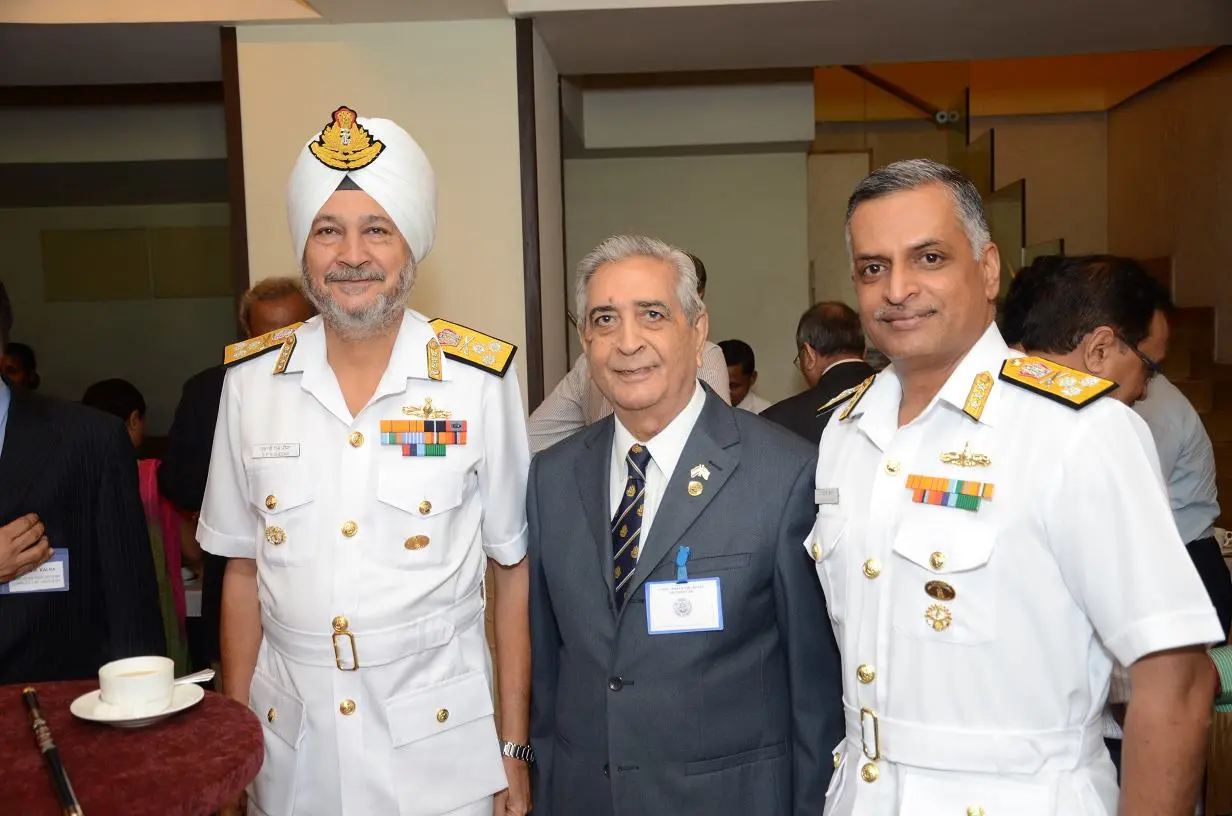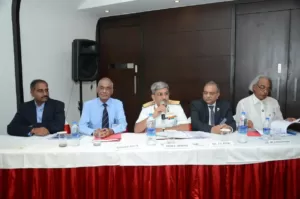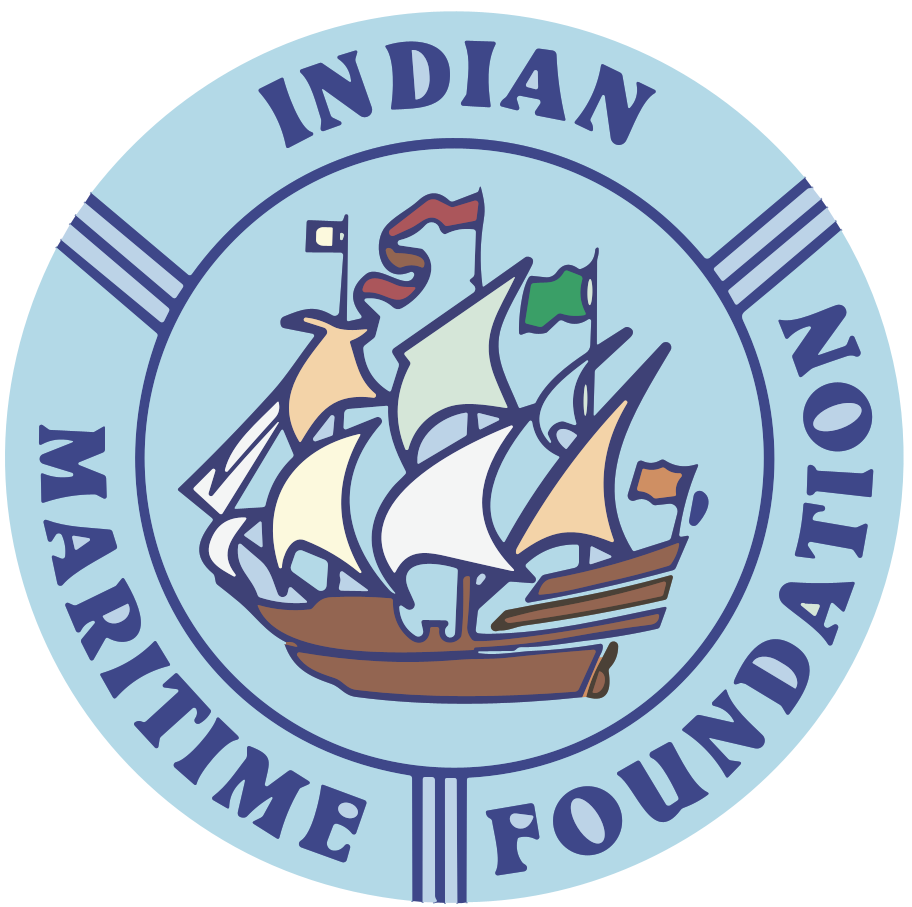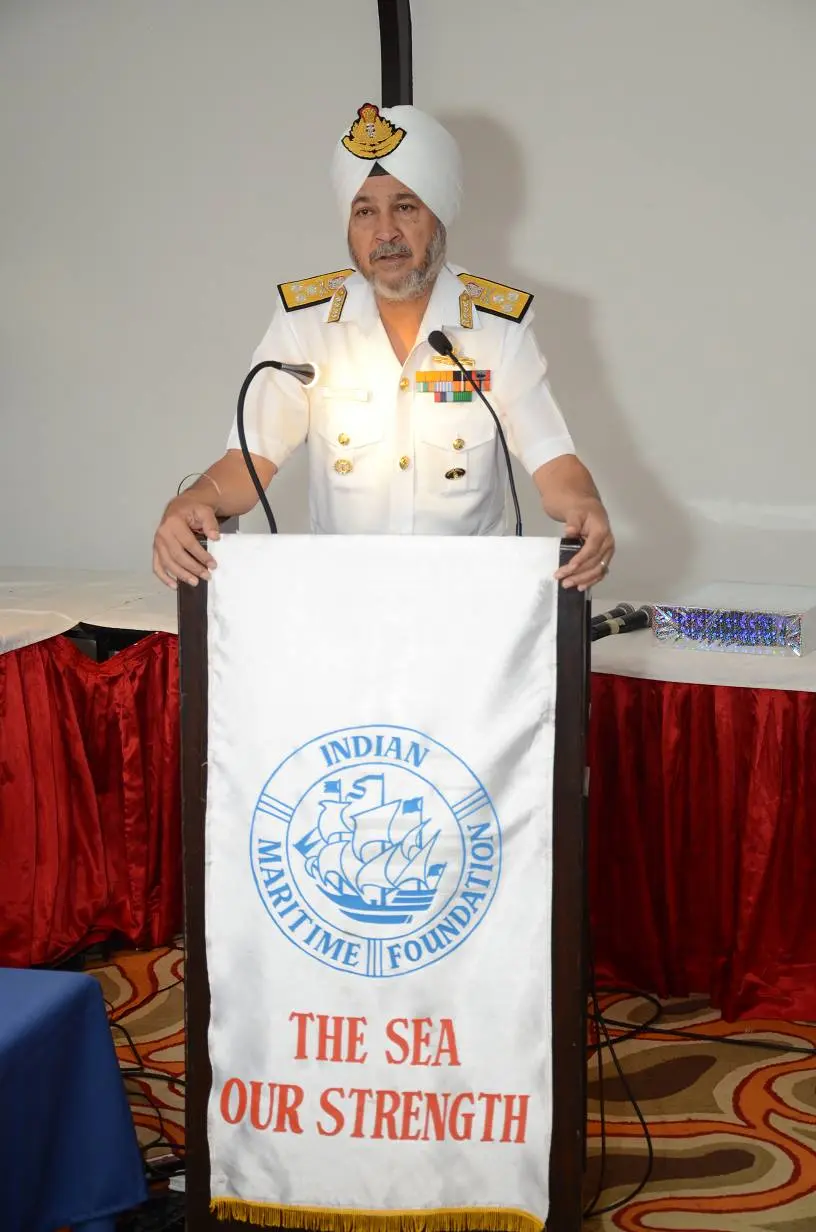
Annual IMF Seminar 2015
“Indigenisation in the Maritime Domain and Implementing the Challenges of ‘Make in India’”
Introduction
‘Make in India’ is one of the many catchy schemes initiated by Prime Minister Narendra Modi and one that has traction not only in the country but, by all accounts, even abroad. Given the scale of unemployment in the country and the aspirations of the large numbers seeking employment the success this scheme, together with many of the others initiated recently, is crucial to ensure that what is being hailed as a demographic dividend does not become a demographic disaster. It is with this background that the Combined Study Group of the Indian Maritime Foundation organized this seminar which was held at the Central Park Hotel, Pune on 5th November, 2015.
Welcome Address by Cmde Rajan Vir
Commodore Rajan Vir welcomed the Chief Guest VADM SPS Cheema, FOCinCWEST, the moderators and speakers enumerated below, and delegates that included defence officers both serving and retired, officers and cadets from the merchant marine, IMF members, captains of industry, academics, ladies etc. He spoke about the IMF and its varied activities, including the latest venture, namely, the Maritime Museum and Library at the Deccan College which had had already started attracting students and others to visit.
Inaugural Address by VAdm Vinod Pasricha
VADM Pasricha, in his inaugural address, gave a brief background of the maritime situation of the country. He traced the development of the Navy over the years, its indigenisation programmes. with its successes and shortcomings. He ended with some recommendations and set the background for the deliberations to follow.
Keynote Address by VAdm SPS Cheema, FOC-in-C, WNC
The Chief Guest VADM Cheema, after thanking the IMF for organizing a seminar on this very important and timely topic and inviting him, traced the beginnings of indigenisation in the Navy and dwelt on its expansion plans which gave industry huge business opportunities. He recognized the problems industry faced and stated that the government needed to be a partner with industry. He made special mention of the opportunities in the offset clause in indigenous ‘Make’ contracts and highlighted that this was an area where government could play a major role by changing its attitude towards industry. He brought out that whereas in the float category of warship construction we were at 90% indigenisation, move category was 60% but we were lagging in the fight category with only 30%-and this was where we needed to focus on.
Session I
Talk by RAdm IPS Bali
After the tea break the first session, moderated by RADM Satish Godbole (Retd), commenced with RADM IPS Bali talking about the ‘Challenges and Opportunities in Naval Acquisitions’, stated that defence had been rightly identified as a key sector for the ‘Make in India’ initiative as it, especially the Navy and Coast Guard, had already chalked up considerable success. He highlighted areas of shortcoming especially in the field of weapons and airborne systems and dwelt on the challenges and opportunities for further indigenisation.
Talk by Capt TP Gopan
Capt. TP Gopan, Director DEE at IHQ, slotting in for RADM Bose, spoke on ‘Fleet Modernisation and Challenges of Make in India’. He talked about the Navy’s expansion plans which included the induction of over 40 ships and submarines in the near future, apart from the mid life upgradation of existing platforms. The opportunities for industry were therefore significant and he highlighted the need for private industry to step up to this challenge whilst recognizing the role of the Navy and Government to tackle the problems that have so far thwarted industry from being a player in the defence sector.
Talk by RAdm Sanjay Chaubey
RADM Sanjay Chaubey Project Director (WL & IT) MOD spoke on ‘Quality Assurance Challenges-A Perspective’. His paper examined the role of DGQA in the design, development, production and inspection of quality products. This required the creation of robust test facilities and the creation of hubs of manufacturing excellence which recognized the ownership of intellectual property. The role of MSMEs and enabling them to adopt ‘Zero Defect Zero Effect’ model under the ZED initiative was also highlighted.
Talk by Dr S Guruprasad
Dr S Guruprasad, Outstanding Scientist & Director R&DE (Engineers) DRDO, spoke about ‘New Challenges for Defence Research’. He stated that we needed to identify relevant technologies required for the next 15 years so that indigenous efforts towards self reliance are successful. The challenges were multi faceted and multi disciplinary. He then went on to identify the different areas where defence research needed to concentrate. The list was daunting and highlighted the complexity of the task ahead. This talk was followed by a discussion session and then by a welcome break for lunch.
Session II
RADM Kalidoss Srinivas, Director DMDE, took over as moderator of the second session and observed that whilst the first session comprised of speakers from the service this session would present the views of industry.
Talk by Mr JD Patil
Mr. JD Patil, Senior Vice President and Head Defence and Aerospace, L&T Ltd. who presented a paper on ‘Make in India a Industry Perspective’. He stated that increasing levels of indigenisation required a partnership between industry to develop a ‘Defence Industrial Base’. This called for a judicious combination of “Make in India’ and ‘Make for India’ highlighting the importance of building export markets. He also called for a level playing field between the private and public sectors in order for the private sector to play its rightful role and make self reliance a possibility. He then spent some time in describing the role of private industry in this strategic sector, highlighting the significant contribution of L&T in capacity and capability building.
Talk by RAdm RM Bhatia
RADM RM Bhatia, Executive Director, Pipavav Defence and Offshore Company spoke on ‘Maritime Industry Perspective on Challenges/Opportunities. As a result of the planned opening up of the private sector in defence manufacturing, the expansion programme of the Navy and Coast Guard and the backlog of orders with the public sector there was a need to look at various aspects of shipbuilding in India. His presentation focused on these areas to ensure quality products and timely delivery to the Navy and Coast Guard.
Talk by Mr Suresh Rajani
Mr Suresh Rajani, CMD of M/S Hyprcision Hydraulics stated that in industrial countries SMEs contributed 70 to 80% of the products manufactured by the defence sector as compared with an abysmal 8-10% in India. He stated that the efficiencies and quick decision making of SMEs are key contributors that enable large manufacturers to keep their costs down. There was a synergy between the two that enabled both to benefit. It was therefore essential that SMEs contribution to the defence sector was increased and he talked of the problems and challenges that this enatailied.
Talk by Mr Ayyappam Ramamurthy
Mr. Ayyappam Ramamurthy, Technical Director of Siemens who spoke instead of Brigadier Prakash Tolani stated that recognizing the growing complexity and cost of modern ships Siemens PLM Software delivers a new shipbuilding solution which transcends the entire ship life cycle. He also gave some details of the next generation ship design and engineering process leading to greater efficiency.
The discussion session ensued after the above talk. As always the two discussion sessions were the best part of the seminar where the audience got a chance to grill the speakers and in some cases to contribute substantially to the expertise on the subject. That these sessions were enjoyable was evident by the number of questions posed and the MC had to bring the sessions to an end to try and keep to the time allotted.
Concluding Address by VAdm DSP Varma
The Concluding Address by VADM Varma was the piece de resistance in which he not only summed up the contributions made by the speakers but added his own very knowledgeable comments. He pointed out the difference between ‘Make in India’ and ‘Made in India’ and ended with a series of incisive recommendations that will find place in the Proceedings being compiled on the seminar.
Vote of Thanks by RAdm Mohan Rao, Seminar Convener
The Vote of Thanks was delivered by the Convener of the seminar RADM Mohan Rao, after which Cmde Vir took the mike and stated that since the Convener could not thank himself he would do it as his contribution, together with that of VADM Varma, was immense. Thanks to VADM Varma we were able to get speakers of excellence and also the largest audience we have had so far.
The evening ended with a welcome cup of tea!















